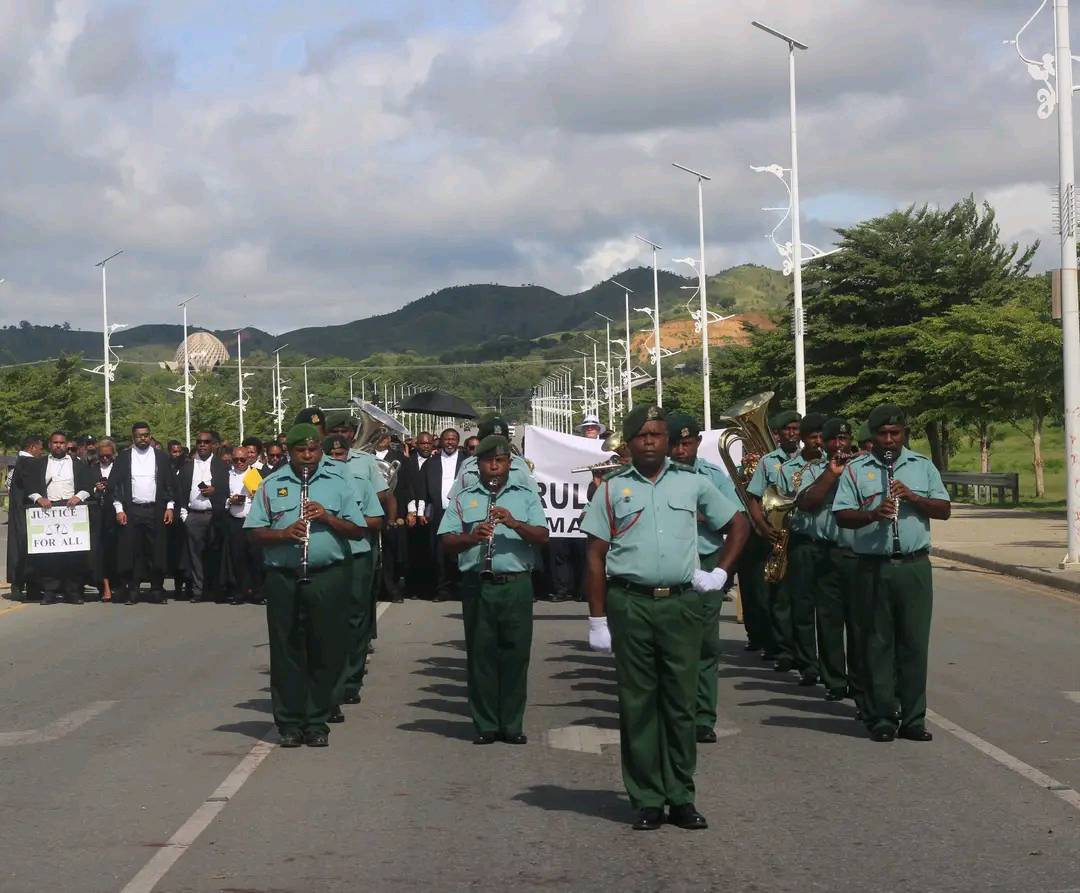Papua New Guinea Law Society president Hubert Namani has described as a threat to democracy the Counter-Terrorism Act 2024, the National Executive Council Act 2025, and Constitutional Amendment No 48 (Motion of No Confidence) Law 2025.
He said after Monday’s Rule of Law march by lawyers that the new laws threatened the checks and balances that upheld the country’s democracy.
He said laws that once ensured transparency, scrutiny and judicial oversight were being replaced by “measures that consolidate power” and limited legal challenge.
“Democracy thrives on the ability to question authority and challenge decisions affecting our lives,” he said.
“Yet, with each new decree, we witness an increase in restrictions on our right to seek justice, demand accountability, and uphold constitutional principles.”
On the Counter-Terrorism Act 2024, Namani said it extended beyond its purpose and granted police immunity to criminal and civil liability.
He said unchecked power always invited abuse, and potential human rights violations loomed large without oversight.
“Even more concerning is the vague and expansive definition of terrorism within the Act, to include “the advancement of a political, religious, or ideological cause,” he said.
“Under such provisions, any citizen, activist, journalist, or opposition member could be unjustly labelled a terrorist for merely speaking out against Government policies.”
Namani said laws were meant to be instruments of justice and not weapons of oppression, and that the Counter-Terrorism Act 2024 could be used to stifle freedom of speech, association and the press.
He added that the new National Executive Council (NEC) Act 2025, which saw its second reading in a recent Parliament sitting, would render NEC decisions non-justiciable.
This meant the Act, if passed, would sideline the judiciary and make NEC decisions immune to legal scrutiny.
“Together, these legislative shifts signal a dangerous drift toward authoritarianism,” Namani said.
Namani said Papua New Guineans faced human rights violations every day, especially with the rise in lawlessness across the country which has eroded public safety.
“This is not the legacy we want for our country, nor the future we want for our children,” he said.
“As we stand together today, we call for greater accountability, transparency, and reform.”
He said while development and economic growth were vital, “they cannot come at the expense of law and order,” he said.














